DEC 2022. Blues Vol 38 No. 12
- Text
- Tina jaeckle
- Jessica jones
- Rex evans editor
- Michael barron publisher
- Iacp officer of the year
- Officer thadue holloway
- Christmas gift guide
- Police news
- Bluespolicemagazine
- Largest police magazine
- Holloway
what easy to bypass
what easy to bypass those restrictions some say. “There’s YouTube videos that could walk your grandparents through how to update the software on one of these drones to be non-detectable and to do a whole lot of other things—get rid of elevation ceilings, all kinds of stuff,” a government contractor who has helped collect data for federal authorities said. “If you were to go buy a DJI drone at the store, it wouldn’t fly over airports or specific cities because of a specific no-fly zone. So, anything that we see in DC that is a DJI-manufactured product has been hacked or manipulated to enable flight in these zones.” Malicious actors might be able to take advantage of being able to easily bypass restrictions. The contractor compared the potential threat as that of “an eight-year-old kid or an unsuspecting adult who got a DJI for Christmas and is unwittingly collecting data for somebody who could become a serious trea.” The contractor warned that a sophisticated user might be able to “use a drone for industrial espionage or cyber-attacks.” Or it could be something as simple as someone using such a drone for access to wireless info in a home. “One could land a drone on your house and start capturing all the wireless information that’s being broadcast out of your home,” the contractor said. “Similarly, one could do that on a federal building, a power grid or other critical infrastructure. And the reality is, people on the tech side always said, ‘look, at any point in time the Chinese can take control of a DJI that’s flying in the air.” Politico noted that the federal government has accused DJI of having ties to the Chinese government, while public records indicate Beijing-backed individuals are among investors in the company. Those links were considered when the Pentagon decided to blacklist the drones. Meanwhile Burrell, DJI’s communications manager denies the company has any ties to the Chinese government. “We are a private company. We don’t take any money from the Chinese government,” she said. She also said the company is committed to following US laws and regulations, claiming the company is “passionate about flight safety.” According to the Federal Aviation Administration, there are over 870,000 drones currently registered in the United States, an amount that is three times that of piloted aircraft. The FAA further estimates that by 2024, there will be some 2.3 million “unmanned aerial systems”—1.5 million recreational drones and model aircraft and 800,000 commercial drones—registered to fly in the U.S. With the increase in drones has come an accompanying increase in drones being flown in restricted areas, including violating temporary flight restrictions or TFRs that are designed to protect the president. Since 2018, the Secret Service has encountered “hundreds of drones” violating TFRs, according to Samantha Vinograd, acting assistant secretary of Homeland Security testifying before the Senate Homeland Security and Government Affairs Committee. In her testimony, she also warned that commercially available drones can “be used by hostile foreign intelligence agencies or criminals to collect intelligence and enable espionage, steal sensitive technology and intellectual property, and conduct cyber-attacks against wireless devices or networks.” “The potential implications can be significant for sensitive U.S. facilities, the defense industrial base, technology firms, and others,” she added. Meanwhile in Washington, D.C., there have been a reported 100 or more incursions in the city’s airspace over a 45-day period, however sources speaking to Politico asked that specific numbers, locations, and frequency of the incursions not be reported for security reasons. For example this past summer, one such incursion resulted in flights into and out of DC’s Ronald Reagan Washington National Airport being halted. “There are a lot more drones flying in our airspace than you would expect,” the contractor said. “You’ll see hundreds of them over that same time period, but the biggest difference is obviously the national capital region is the most secure air space in the world,” they continued. The so-called Special Flight Rules Area around the nation’s capital consists of a 55-mile ring that starts at Reagan National. Any user requesting to fly inside the area must obtain a waiver from the FAA. The agency has implemented a number of additional steps to detect drones to ensure they do not interfere with commercial aircraft or otherwise pose safety hazards, Politico wrote., For example, the agency adopted a “remote identification rule” lasts year that requires drones be identifiable with a form of “digital license plate,” designed to assist law enforcement agencies “find the control station when a drone appears to be flying in an unsafe manner or where it is not allowed to fly,” the FAA said. The FAA, in addressing incursions above sensitive federal buildings, said while the agency is responsible for managing that restricted airspace, it is the Secret Service that is charged with defending it. “Due to the need to maintain operational security, the U.S. Secret Service does not comment on the means, methods or resources used to conduct our protective operations,” a Secret Service spokesperson told Politico. Congress has become increasingly concerned about the use of drones and the potential threat to national security. In February, Rubio introduced a bill to add DJI to a Federal Communications Commission list designating the company as a national security threat. That would restrict the company’s drones’ ability to link to U.S. telecommunications systems. The bill has gone nowhere in Congress, likely because Senate Democrats are more concerned about things such as codifying gay marriage. Rubio proposed the measure after a report that DJI was attempting to conceal its funding by the Chinese government. Rubio, in partnership with some Democrats has likewise proposed legislation to prohibit U.S. government entities from using federal funds to purchase Chinese-made drones. That legislation has also hit a brick wall. Politico wrote that Democrat Sen. Gary Peters (D-Mich), chairman of the Homeland Security and Governmental Affairs Committee helped author a bipartisan bill in July that would expand the authority of the Departments of Homeland Security and Justice, as well as state and local law enforcement authorities, to detect and counter drones which may present a national security threat. That bill would also create a database of “security-related” incidents involving unmanned aerial systems within the U.S. Some however worry that a nationwide drone tracking system might present First Amendment issues. For example, the American Civil Liberties Union, which was absent as COVID restrictions that violated a number of constitutional amendments went unchallenged by the group, claims the proposal violates the right to privacy, among other rights. The group argues that “such a system threatens to erase any possibility of anonymous operation of drones so that, for example, an activist wishing to record corporate malfeasance or police actions at a protest [always after the police, the ACLU] might be targeted after the fact, or chilled before it.” However, with the federal government’s current authorities to counter drones set to soon expire, the Biden administration and other federal authorities are urging Congress to act. “We have located hundreds of drones that have been acting in violation of federal law each time, and as the threat continues to grow, we’re investigating even as we speak several incidents, even within the U.S., of attempts to weaponize drones with homemade [improvised explosive devices],” FBI Director Christopher Wray told Peters’ committee on Nov. 17. “That is the future that is here now, and this authority desperately needs to be reauthorized.” 38 The BLUES The BLUES 39
- Page 1 and 2: The BLUES 1
- Page 4: FOUNDED IN 1984 OUR TEAM MICHAEL BA
- Page 8: FROM THE GUEST EDITOR’S DESK Noti
- Page 12: READERS SPEAK OUT Throwing Down-Bal
- Page 16: AROUND THE COUNTRY CABO ROJO, PUERT
- Page 20: AROUND THE COUNTRY PUNTA GORDA, FL.
- Page 24: AROUND THE COUNTRY LAS ANGELES, CA
- Page 28: BACK THE BLUE AWARD FLORIDA HIGHWAY
- Page 32: AROUND THE COUNTRY TAMPA BAY, FL. N
- Page 36: AROUND THE COUNTRY WASHINGTON, DC.
- Page 42: AROUND THE COUNTRY ACROSS THE US La
- Page 46: AROUND THE COUNTRY Mental Wellness
- Page 50: AROUND THE COUNTRY Grief & The Holi
- Page 54: Spanish Police Take Delivery of 169
- Page 58: True Warrior: Officer Thadeu Hollow
- Page 62: In a Split Second “When he turned
- Page 66: Holloway showed “remarkable” ca
- Page 70: Holiday Gift Ideas for Your Law Enf
- Page 74: Tactical Vest Koozie This is a funn
- Page 78: Kickass Rides for Adults ZFORCE 950
- Page 82: RIDE-ON CAR MASERATI FOR KIDS This
- Page 86: HONORING OUR FALLEN HEROES LIEUTENA
- Page 90:
HONORING OUR FALLEN HEROES DEPUTY S
- Page 94:
BY LT. BOB EVANS The Christmas That
- Page 98:
A Cop, Flight Nurse and Two Endings
- Page 102:
THE OPEN ROAD by Michael Barron Bes
- Page 106:
11. HONDA PIONEER 1000- 5This five-
- Page 110:
A BADGE OF HONOR healing our heroes
- Page 114:
NOT SO BRIGHT AWARD lig ht bul b aw
- Page 118:
DR. TINA JAECKLE blue mental health
- Page 122:
SUPPORT THE OFFICER DOWN MEMORIAL P
- Page 126:
ADS BACK IN THE DAY 126 The BLUES T
- Page 130:
Your Source for Law Enforcement Pro
- Page 134:
CAP Fleet is an emergency vehicle u
- Page 138:
DANA SAFETY SUPPLY Dana Safety Supp
- Page 142:
Key Management & Key Control Produc
- Page 146:
Supporting Law Enforcement in TEXAS
- Page 150:
NOW HIRING LE job posit ions Tx. Co
- Page 154:
154 The BLUES The BLUES 155
- Page 158:
austin officers austin dispatch 158
- Page 162:
BECOME A BAYTOWN PATROL OFFICER! ST
- Page 166:
Cuero Police Department Now Hiring
- Page 170:
Forney ISD Police Department NOW HI
- Page 174:
174 The BLUES The BLUES 175
- Page 178:
WE ARE HIRING! BENEFITS • Free ba
- Page 182:
Welcome Mesquite PD 182 The BLUES T
- Page 186:
Memorial Villages Police Department
- Page 190:
MAKE A DIFFERENCE IN YOUR COMMUNITY
- Page 194:
PORT HOUSTON POLICE DEPARTMENT WE A
- Page 198:
City of Wylie Police Department OFF
- Page 202:
202 The BLUES
Inappropriate
Loading...
Mail this publication
Loading...
Embed
Loading...


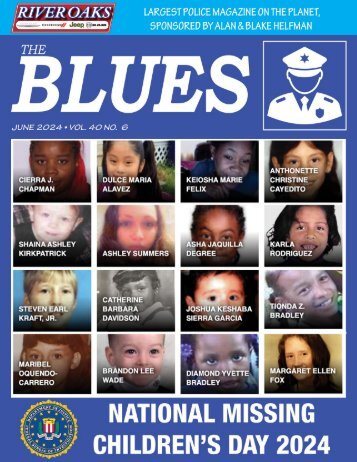

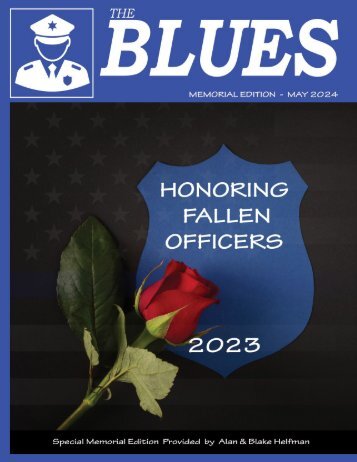



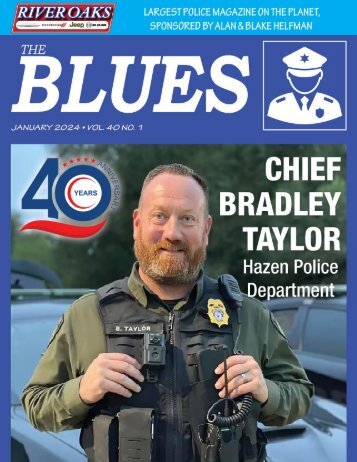




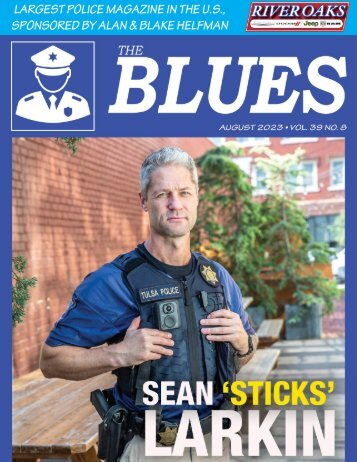
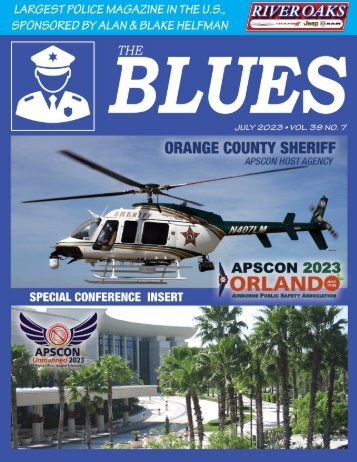
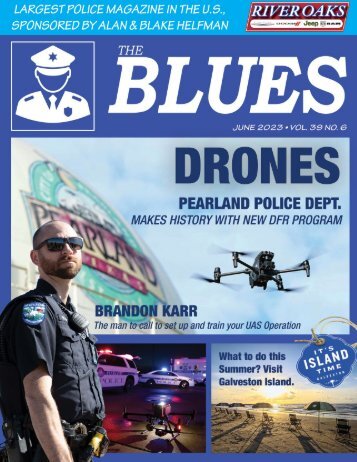

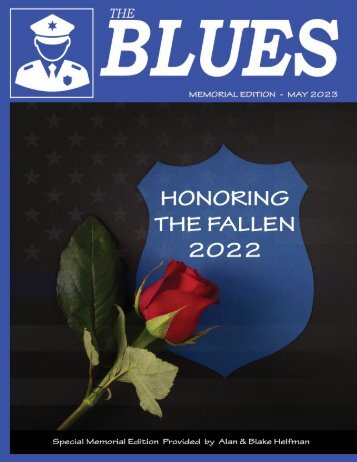



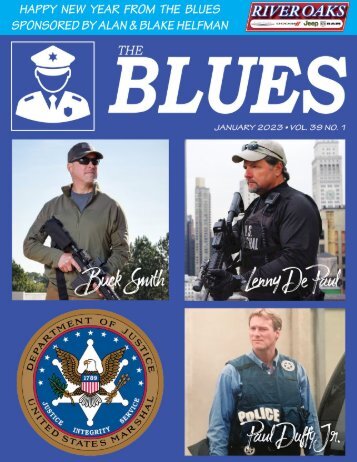



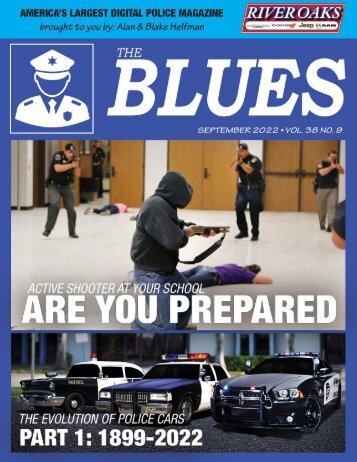







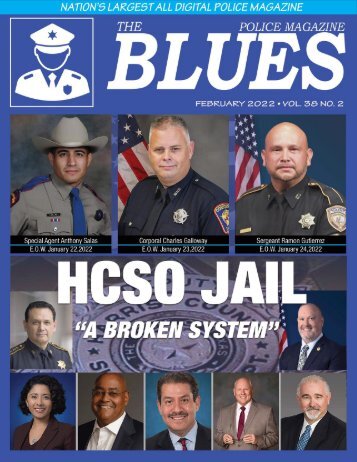
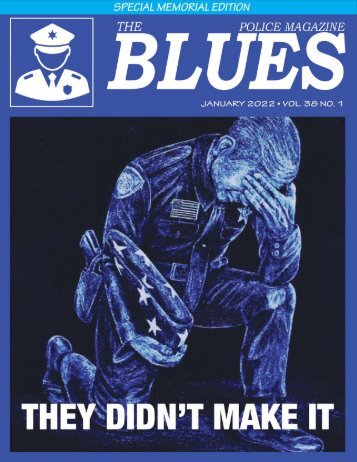


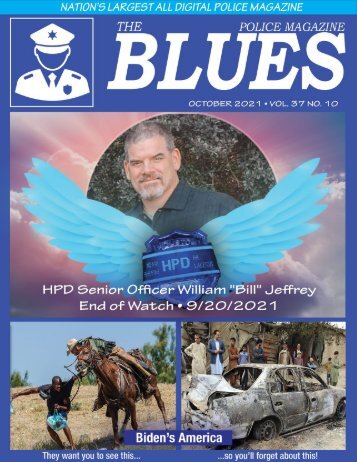






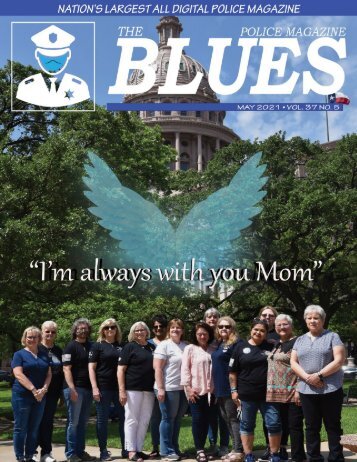


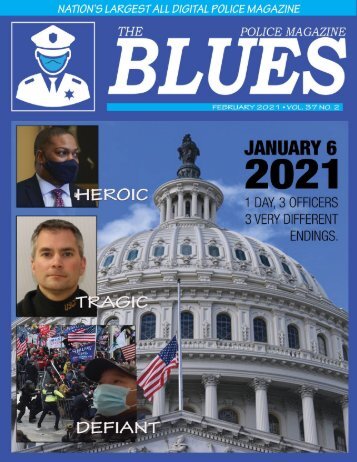








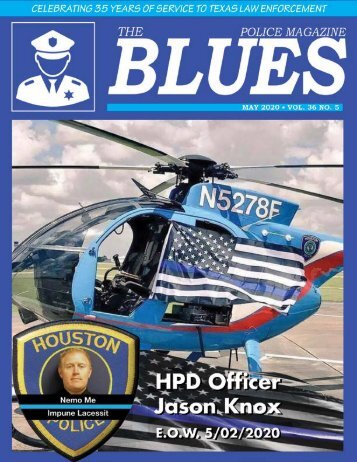
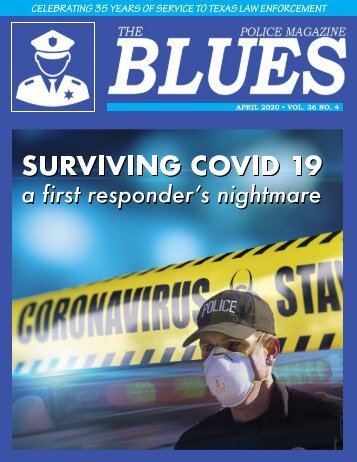
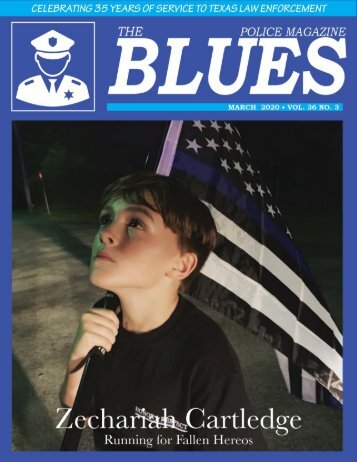

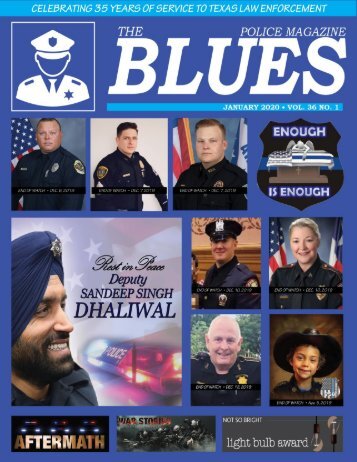
Follow Us
Facebook